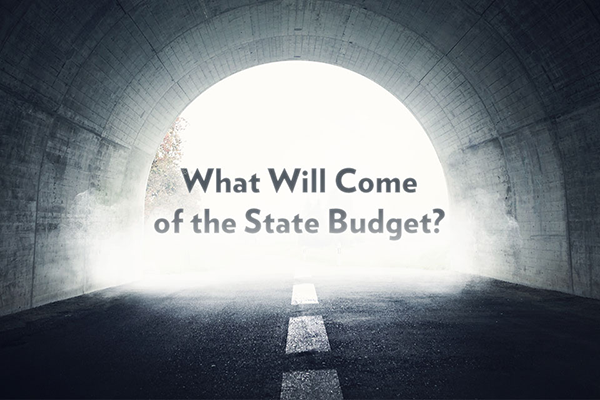Memo

What’s Next for the 2017-18 Budget?
What does the Senate’s vote to non-concur mean?
The Senate’s vote to non-concur on the House plan to balance the budget without tax increases indicates the chamber does not have the votes to pass the proposal. The Senate has not provided a counteroffer. The bill now goes back to the House. If House members vote to insist on the bill as amended, it would go to a conference committee.
How does a conference committee work?
Both the House and Senate appoint three members to serve on a conference committee—two from the majority party (Republicans) and one from the minority (Democrats). The conference committee will report out a bill that goes back to the House and Senate for an “up-or-down” vote; no amendments may be made to a conference committee report. To pass the conference committee report, the proposal must have majority support from both House and Senate members.
In recent practice, negotiations occur outside the normal conference committee, before the committee is formally called. This is presumably done to keep discussions closed to the public, as state law requires public access to a conference committee. In many cases, lawmakers hold a short conference committee meeting to formally adopt a plan they’ve already agreed to.
The conference committee could report something very similar to the House or Senate version of the bill, make minor tweaks, or split the difference. They can also report something completely different, that has been neither debated nor voted on in the House or Senate.
What will happen next?
Rumors are flying. Most believe the $400 million gross receipts tax passed by the Senate, which raises taxes on home heating, electric, and cell phone bills, is dead. The tax has no support in the House, and it barely passed the Senate.
There are rumors that the governor and Senate leaders are pushing for a natural gas severance tax. This could be a higher tax than the one passed by the Senate in July. As we’ve noted, this would be in addition to the impact fee and all the business taxes paid by workers in an industry that lost almost a third of its jobs last year.
Additionally, the use of the Tobacco Settlement Fund is likely, as are some transfers from the shadow budget reserves. However, no one knows how much lawmakers will draw from these funds. Revenue from gambling and some sort of liquor reform are also said to be part of the mix.
Doesn’t the credit downgrade mean we need to raise taxes?
When S&P downgraded Pennsylvania’s credit rating, they did not say we need higher taxes or even “recurring revenue.” Instead, they pointed to the following issues:
- Routinely passing unbalanced budgets.
- Failing to fix the budget last year when there was a revenue shortfall and cost overruns.
- From S&P’s report: “Factors contributing to the negative balance were due to misalignment of ongoing revenues and expenditures (missed revenue estimates of $1.1 billion and cost overruns of $400 million), not one-time factors.”
- Nearly a decade of structural deficits; that is, spending outpacing revenue.
The treasurer has said the cost of the credit downgrade could be $3 million in additional annual borrowing costs. These added costs only occur when the state borrows money—and could be easily offset by borrowing less money every year. The legislature advanced bills to reduce the state’s annual borrowing debt in the wake of the last downgrade. In April, the House again passed legislation to reduce borrowing.
In contrast, the Senate tax hike was nearly $600 million. That represent 200 years’ worth of added borrowing costs imposed every single year on families and businesses.
But shouldn’t we rely on recurring revenues to fix the structural deficits, rather than one time fixes?
Simply raising taxes won’t solve the “structural deficit.” It will exacerbate it.
Spending has grown, and is projected to continue to grow, faster than the state economy. In its latest forecast, the Independent Fiscal Office projects spending will increase by 5.1 percent in 2018-19, while revenue will grow by 3.7 percent (and state GDP by 4.1 percent).
This isn’t sustainable.
Increasing taxes to make up the difference between spending and revenues won’t have a long-term impact. Those taxes won’t grow faster than our economy, but they will undermine economic growth and job creation.
In fact, Gov. Wolf and the legislature raised taxes by $650 million last year. This tax increase didn’t close the structural deficit. Pennsylvania ended the year with an unbalanced budget. Now taxpayers owe $1.5 billion to pay last year’s bills. Worse, this tax hike hurt our economy. Look no further than the recent stories detailing the number of vape shops closing as the result of last year’s onerous tax package.
Pennsylvania can solve its budget challenges in two ways. First, bring spending growth in line with economic growth. That means controlling the growth of spending in areas like welfare, corrections, and education through meaningful reforms, along with enacting the Taxpayer Protection Act. Second, expand Pennsylvania’s economy with pro-growth policies that place an emphasis on the needs of families and businesses rather than government bureaucracies.